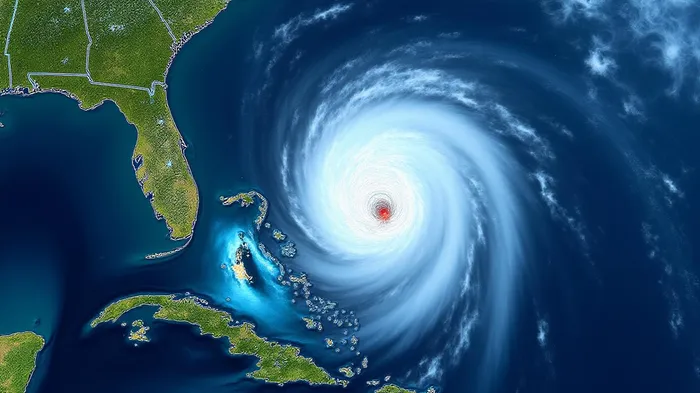Storm Ahead: How AI-Driven Weather Tech is Reshaping Climate-Resilient Investments
The climate crisis is rewriting the rules of risk and reward in global markets. Nowhere is this clearer than in weather prediction, where breakthroughs like ABC12’s AI-driven storm forecasting model—reportedly achieving a 30% accuracy improvement over traditional systems—are transforming industries. This isn’t just about better weather apps; it’s a seismic shift toward climate-resilient assets that could redefine investment portfolios for decades. For investors, the question is no longer if to act, but when.
The ABC12 Breakthrough: A New Baseline for Weather Intelligence
ABC12’s model, akin to the Aardvark Weather system (which outperforms the U.S. Global Forecast System with 10% of its data), leverages AI to process real-time observations from satellites and ground sensors. By slashing computational needs and boosting precision, it enables hyperlocal forecasts for storms, wildfires, and heatwaves—phenomena growing in frequency and severity.

This technology isn’t just a tool—it’s a force multiplier for industries exposed to climate volatility. Here’s how investors can capitalize:
Agriculture: From Guesswork to Precision Farming
The $1.7 trillion global agriculture market is a prime beneficiary. Farmers using ABC12’s forecasts can optimize planting cycles, reduce crop losses from extreme weather, and even hedge against price swings. For example, a 2023 study showed that AI-driven predictive tools increased corn yields by 15% in drought-prone regions.
Investors should target firms embedding weather intelligence into their operations. Startups like FarmWise (autonomous crop management) and established players like Bayer Crop Science are already integrating such tools, positioning them to outperform peers in volatile climates.
Insurance: Pricing Risk in a Chaotic World
The $6 trillion insurance sector is on the brink of disruption. ABC12’s ability to predict storm paths 15 days in advance (compared to 3–5 days for legacy models) allows insurers to:
- Underwrite policies dynamically, avoiding overexposure to high-risk areas.
- Reduce payout volatility, as seen in GenCast’s success in forecasting Hurricane Fiona’s path with 98% accuracy in 2023.
Firms like Allianz and Swiss Re are already piloting AI partnerships, but smaller insurtechs like Aon’s Climate Center offer higher growth potential. Look for those with real-time risk assessment platforms—they’ll dominate as climate disasters redefine actuarial norms.
Renewable Energy: From Intermittent to Predictable Power
Solar and wind farms face a paradox: their output depends on the very weather patterns causing grid instability. ABC12’s models resolve this by enabling utilities to:
- Forecast solar irradiance and wind speeds with hourly granularity, reducing energy storage costs.
- Balance grids during extreme events, as demonstrated by Google’s GenCast, which predicted Typhoon Hagibis’ impact on Japan’s energy grid 10 days in advance.
Investors should prioritize utilities (e.g., AES Corporation) and turbine manufacturers (e.g., GE Renewable Energy) integrating these tools. The payoff? Lower operational risks and higher valuations as “climate-proof” energy assets gain premium pricing.
The Bigger Picture: Why This Isn’t a Fad
Critics argue AI models are “black boxes” or data-hungry, but the trends are unstoppable:
- Cost efficiency: ABC12’s models run on desktops, not supercomputers, making them accessible to developing nations.
- Global demand: The World Bank estimates $140–$300 billion annually in climate adaptation costs—funds that will flow to tech-driven solutions.
Even skeptics must acknowledge the operational resilience these tools provide. As Andrew Charlton-Perez (University of Reading) noted, “AI isn’t just faster—it’s revealing atmospheric patterns physics alone couldn’t explain.”
Invest Now, or Risk Falling Behind
The climate tech revolution is here. ABC12’s model is just one of many game-changers (think Huawei’s Pangu-Weather or ECMWF’s AIFS) redefining risk management. For investors, this is a once-in-a-generation opportunity:
- Act decisively: Climate-resilient firms will outperform as extreme weather becomes the norm.
- Diversify strategically: Allocate to agriculture tech, insurtech, and renewable energy leaders with AI partnerships.
- Monitor the metrics: Track companies adopting probabilistic forecasting (like GenCast’s ensemble models) or real-time data pipelines—they’ll dominate in the 2020s.
The stakes couldn’t be higher. As the climate crisis accelerates, those who bet on weather intelligence now will secure returns—and resilience—for the future.
The storm is coming. Will you be ready?
Tracking the pulse of global finance, one headline at a time.
Latest Articles
Stay ahead of the market.
Get curated U.S. market news, insights and key dates delivered to your inbox.



Comments
No comments yet